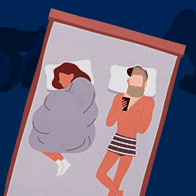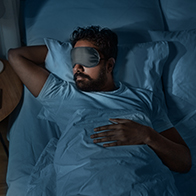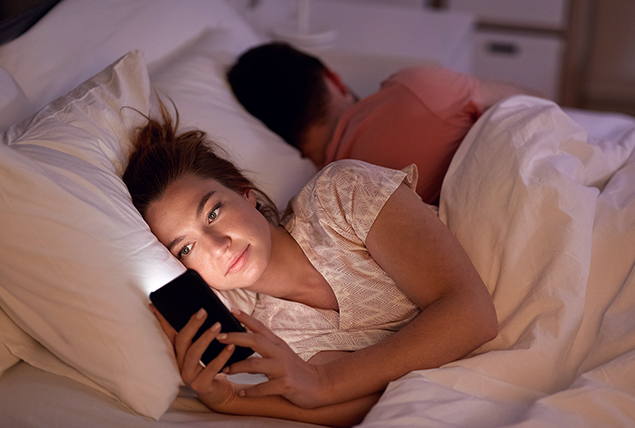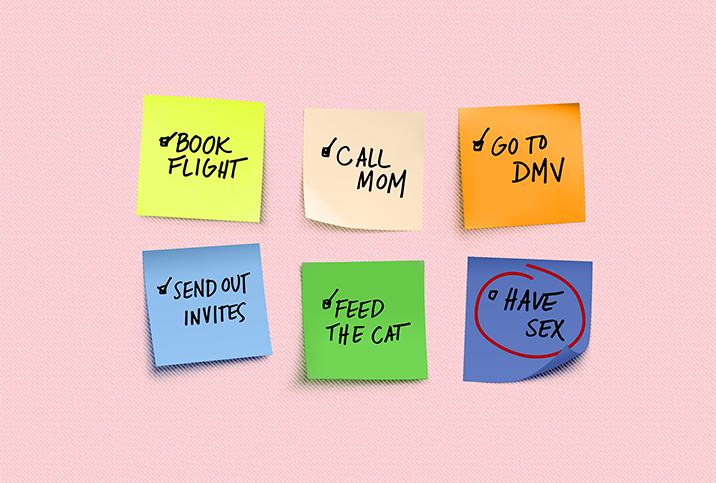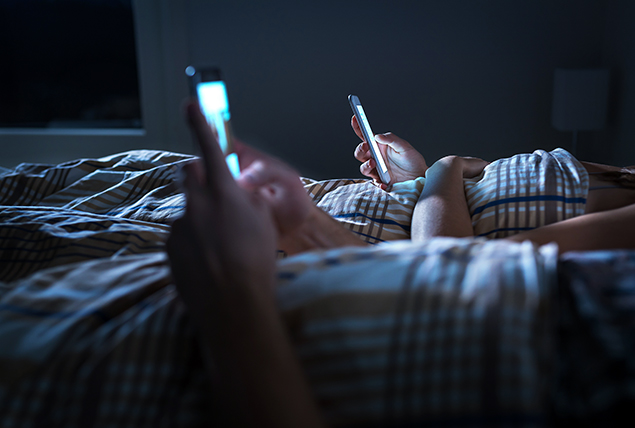Are We Not Having Enough Sex in 2023?

We've been told we're in the midst of a sexless epidemic of loneliness. According to the General Social Survey in 2021, more than 25 percent of Americans did not have sex at all in the previous year.
Slightly less than 40 percent of Americans were having sex at least once a week when this figure was at about 50 percent in the 1990s.
This is worsened by the sex recession among young adults. This is especially true of Generation Z—that is, the youngest generation with adult members, born between 1997 and 2013—who are saying "no" to casual sex and even going celibate.
It then comes as no surprise that birth rates in the United States have plummeted over the past 60 years. In 1963, according to United Nations data published in January 2023, the average number of children born per woman in the U.S. was 3.234. In 2023, this same number is estimated to be 1.784.
New York City-based sex expert and marriage therapist, Jane Greer, Ph.D., author of "Am I Lying to Myself? How to Overcome Denial and See the Truth" said that increasingly, free sexual expression is not something young people feel they have to engage in, in order to arrive at a point of emancipation.
"Being sexually free is now a way of declaring one's adulthood to themselves," she added. "For those who are making a choice to not be sexually active, or be less experimental, it gives them a sense of control and self-worth. Those who are in a relationship may be grappling with elements that could contribute to sexual discomfort. These could make them feel bad about themselves and feel insecure."
Not to mention the oversharing of our lives on social media could further exacerbate young adults' lack of sexual self-esteem.
Expectations of perfection on social media
"Young adults, more than any generations before them, have been brought up in a space inundated with comparison and expectations, with the normalization of oversharing via social media," said Joy Berkheimer, Ph.D., LMFT, a sexologist and relationship therapist based in Boca Raton, Florida.
"The human form is constantly on display, including the supposed 'perfect' genitalia, sex positions and even full-on orgasms. In the past, you would have had to go to the back of that bookstore for that one copy of the 'Kama Sutra' manual, to get even a glimpse of a nipple," she noted. "Now everything says, 'Look like this or you're broken.'"
Stop looking to social media to educate them on 'real sex'
In choosing to become less sexually active, young adults "have fewer instances of having to put on sexual performances in their intimate relationships and [are] instead redistributing time to building the friendship in their relationships," she added.
Overworked to the point of sexlessness
Couples therapist Kathy McMahon, Psy.D., founder and president of Couples Therapy Inc., a center with counselors based across the U.S. and internationally, attributed Americans' increasing sexlessness to a lack of work-life balance.
"Exhausted, alienated, consumer-focused, financially unstable and lonely people often lack libido and default into a de-energized and depressed state," she said.
She went on to explain that the original concept of "libido" was based upon a notion of life energy that extended beyond sex.
"It's a lust for life, not just the sack," McMahon said.
This lust is clearly lacking today.
In a 'gig' economy when there is little job security and even owning a home is a big 'if' without help, stress is high.
Let's take a look at a typical Gen Zer. The median salary of a 20-24 year old is around $38,000. And yet average monthly rents across the U.S. for a two-bedroom apartment is now $1,320, up from $1,282 just a year ago. Add in the cost of food, electricity, gas, phone bill and subscriptions and meeting the monthly total is going to be close.
"In a 'gig' economy when there is little job security and even owning a home is a big 'if' without help, stress is high," she said. "Time spent at work is high. Exhaustion is high. Anxiety and depression are high. Is it any wonder that Gen Zers are needing to pull back from the 'demands' of relationships?"
More than 31 percent of the U.S. population have been depressed or anxious at some point in their lives.
"While a small number of those who suffer [from] clinical depression have a pressured, almost compulsive drive for sex, most have little interest," she said.
When a person is feeling depressed or anxious, "self-care moves up the priority chain."
Is self-pleasuring affecting our sex lives?
"With the ease of access to sex toys and masturbatory aids, we [no longer] need a partner to 'have sex,'" McMahon said. "We may be seeing a generation of young people with huge pressures and a lot of distractions to amuse themselves without leaving home."
In addition, partnered sex may not play a part in overall sexual satisfaction for some people, said Kate Balestrieri, Ph.D., a Beverly Hills, California-based certified sex therapist and founder of sex therapy and couples therapy platform Modern Intimacy.
"There may be a sexual recession when it comes to partnered sex, but many folks have expanded their definition of sex to include more solo-sex-based activities," she added.
When does abstinence from sex become unhealthy?
"[Having] less sex may become an experience of scarcity—scarcity of connection, touch, validation, identity—and [people] may become more desperate to have sex, entitled or embittered," Balestrieri explained. "For [some], less partnered sex might give them the opportunity to reframe their relationship with sex, and they may invest in cultivating sex that is more pleasurable, opting for quality over quantity."
Having less sex could give you space to know what your body feels like in those non-stimulated periods, she added.
"You have an opportunity to know what it's like to engage with someone intimately—without sex—and realize that sex can be so much more intense when you have a period of intentional attention to building energy with the person you desire to engage with in the future," she said. "Taking space also allows you to engage in practices, mediations and narratives that build the beliefs around sex being sacred."
However, while not having sex could be empowering for some people, it could become detrimental when it crosses a certain line.
"Abstinence becomes unhealthy when it is incongruent with someone's wish to be sexual," Balestrieri said. "Desire ebbs and flows and it is a healthy process to introspect about one's own motives for sex."
Can we have a sex revival?
"Young adults are losing interest in the exhaustion of what feels like a show," Berkheimer said. "Sex is adult play. This is not supposed to be exhausting. What I would advise them to do is stop looking to social media to educate them on 'real sex.' And that includes porn."
Instead, she recommended reading books on understanding touch, intimacy, pleasure and play, such as "Come as You Are: The Surprising New Science that Will Transform Your Sex Life" by Emily Nagoski, Ph.D.
McMahon said these elements should be in place for more robust sexual interest—good health, being free of financial worries, a rich social network, feeling valued and loved, comfort with one's body and more.
"My advice would be for single folks to interact with kind, interesting, loving folks they would like to kiss and start with that. You won't know if you want to kiss by looking, so start a conversation, do things together to help the community and open up to each other," she said. "For those in committed relationships, keep up your sex life by kissing twice daily for 6 seconds each. If you find yourselves turned off while doing that, it's time to set aside time to talk in more depth. No one can be too 'busy' for a 6-second kiss."
Couples have to protect their intimate time from the ravages of overworking, stress, 'entertainment', kids and so on, she added.
"No one else will do that for them," she noted.







